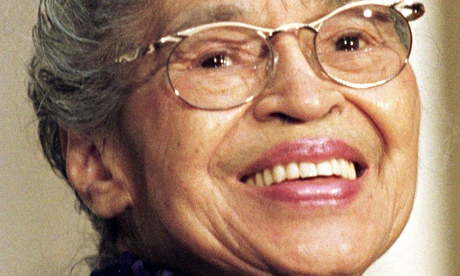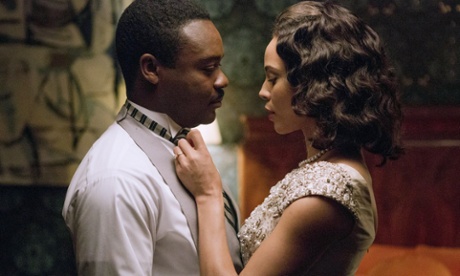Hugh Muir’s account of Martin Luther King in London (G2, 3 December) recalls the lunch I and my husband CLR James had at our home with Coretta and Martin Luther King in 1957. It occurred after CLR met them at the celebration of Ghana’s independence. Also present besides George Lamming, the distinguished Caribbean novelist, was Dr David (later Lord) Pitt, the renowned campaigner against racism in Britain. He was also our family doctor. Eight years later, as Hugh relates, King and Bayard Rustin, a long-time campaigner, addressed a meeting of anti-racists here. The question of forming an organisation was raised. CLR said: “We are together, let us arrange a meeting now to form it.”
But, quiet as it’s kept, women were central. CLR had left the country to report on cricket by the time a few of us formed the Campaign Against Racial Discrimination. Ranjana Sedhanta became recording secretary and I was organising secretary. We, with women volunteers, built the organisation under Pitt’s chairmanship.
As to the Montgomery bus boycott that propelled King to prominence, it was a black women’s organisation formed to stop white men from raping black women with impunity that trained Rosa Parks among others to campaign. Ms Parks displayed her training by refusing to move to the back of the bus. Those who walked rather than ride the racist buses were principally black domestic workers. King acknowledged the education he got from women, including black welfare mothers who opposed the Vietnam war and influenced his boldest action – the Poor People’s Campaign.
Selma James
London
• Hugh Muir’s otherwise excellent piece omits to pay tribute to the army of race relations activists during the dozen years before the birth of the Commission for Racial Equality in 1976. He rightly acknowledges the excellent work of the Campaign Against Racial Discrimination (Card), lasting three years from 1964. He ought, however, to have mentioned the UK’s first ever Race Relations Act, passed in 1965, and the formation of the National Committee for Commonwealth Immigrants, chaired by Michael Ramsey, archbishop of Canterbury.
Three years later the second Race Relations Act established the Race Relations Board and the Community Relations Commission, which I joined in 1973 as senior information officer. As a descendant of Huguenots, the first major wave of immigrants to flood into England in the 1680s, and married to a black Jamaican, I have always had a deep personal commitment to good race relations.
The commission established a network of local community relations councils across the UK and ran an energetic public relations campaign under its chair, Mark Bonham Carter, to spread public awareness of the contribution of immigrants to this country’s culture and prosperity. The merger in 1977 of the Commission and the Race Relations Board following passage of the third Race Relations Act in 1976 brought the Commission for Racial Equality into existence.
Jane Hammond
Rochester, Kent
• Eric Posner argues against human rights (Journal, 4 December). He begins with a story about extreme police brutality in Brazil. The story borrows its force, however, from precisely those human rights principles that Professor Posner claims to reject. He concludes with a call to promote wellbeing in foreign countries in a way that is empirical rather than ideological. But promoting wellbeing would almost certainly involve improving the enjoyment of human rights. Professor Posner fails to make “the case against human rights”. The case he makes is that implementing human rights is often very difficult and that empirical understanding of the difficulties is necessary. All human rights supporters should agree with these propositions. Posner also relies on his right to free speech to make his argument against human rights. Nothing in his article suggests that everyone everywhere should not have the same right as Posner enjoys. Indeed, we cannot even know what “wellbeing” is in the absence of free debate about its meaning and the means to achieve it.
Michael Freeman
Colchester, Essex









